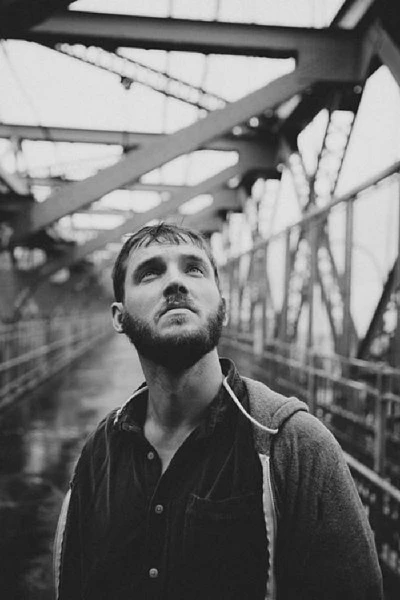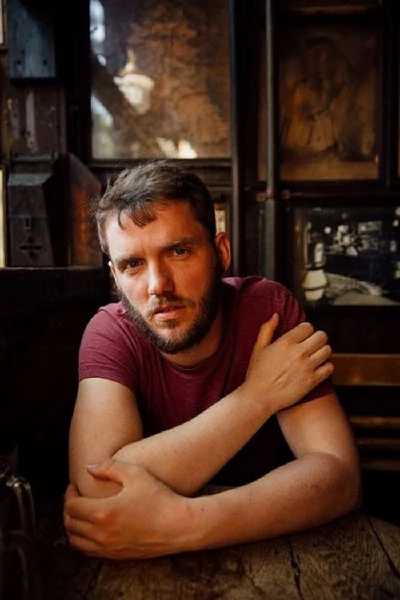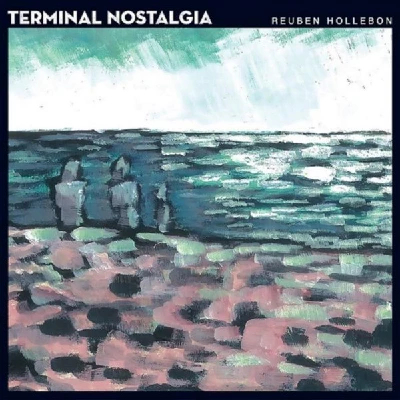published: 8 /
11 /
2016

Lisa Torem speaks to Norfolk singer-songwriter Reuben Hollebon about touring and his evocative songwriting
Article
Reuben Hollebon has a gentle but penetrating voice that harbours a shimmering intensity. He draws the listener in with stark landscapes, bittersweet metaphors and cautionary chestnuts. The lyrical ‘Fields, For Fields’: “Give me a field, Where I can plant my veins/And I can build myself a new frame” is only one fine example of his visceral talent.
But this Norfolk artist also expresses himself with a host of instruments, including harmonium, percussion and strings. On ‘We’re Gonna Miss Us (When We’re Gone)', his serene falsetto floatis over an expressive dirge. Another original ballad ‘Faces’ reveals a mood which borders on the macabre.
Reuben released his EP ‘Clutch’ in 2012 and followed it up with his critically-acclaimed debut LP ‘Terminal Nostalgia’ in May of last year. Prior to becoming a songwriter and performing artist, he worked as an engineer with the likes of Nitin Sawhney, the London Symphony Orchestra and Sir Paul McCartney.
Reuben Hollebon’s touring band will embark on a tour of Europe and the UK with Joseph Arthur at the end of October. Despite his busy schedule, Reuben was kind enough to speak to Pennyblackmusic about his inspirations and more.
PB: You’re a talented multi-instrumentalist. Were you encouraged early on to explore different instruments or did you have intrinsic motivation?
RH: I far from consider myself such; unless you’re very fortunate you have to practice for many hours to be considered talented, natural aptitude or not. Apart from a singular piano lesson when I was young, I didn’t get the opportunity to play music until I was eighteen and got my first guitar. Motivation comes and goes, but when it’s there a new instrument assists the knowledge gained from all the others.
PB: Please list a few songs by your favorite songwriters that you would have gladly co-written.
RH: ‘Ol’ 55’, by Tom Waits
‘Someone Great’ by LCD Soundsystem
‘The Face of Love’ by Nusrat Fateh, Ali Khan & Eddie Vedder
‘Statued’ by Adem
‘Lacrimosa’ by Mozart
PB: The title of your album ‘Terminal Nostalgia’ was inspired by a Kurt Vonnegut passage. How often does literature inspire your lyrics or themes?
RH: Often, I believe. I’ve got a very current obsession with ‘Gormenghast’ from Mervyn Peake, I’ve been in and out of the book for three years. Reading is a very active form of listening. It hits the mind in the most visceral manner.
‘Blood Meridian’ by Cormac McCarthy inspired me but not in a kind way, its anger and violence seeps in. I can’t read it often and I remember first time round being desperate to finish it for a release. He meets his judge naked in the bathroom. I’d like better than that but I’ve doubts.
PB: ‘Haystacks’ begins with the line, “I think that boy’s in trouble”; the thematic tension rises throughout. How do you relate to the character in that story? Do you see him from a distance or does he reflect some inner angst?
RH: It’s a true story about someone I knew. It can stay hidden.
PB: We will soon be able to hear a remix of ‘On and On’ (‘Terminal Nostalgia’). How do you compare the two versions?
RH: When people make music with my music it’s the greatest thing. It can be an improvement or a completely new feeling. They don’t need comparison.
PB: That video serves up a surreal landscape. You’ve whet our appetites, so tell us more. Where was it filmed and how much team work was involved?
RH: For ‘On and On’, there was a lot of make-up. Natasha and her assistant Ruth did a really good job, and we had to cast my whole head the week before just so the last scene would work. I had to remove all my hair but my eyebrows.
James directed and scripted the shot, Matt filmed with help from Greg, and Joe and Jenny assisted. That’s quite a few people for four minutes of film.
It was filmed in the only English desert, Dungeness. I used to go there as a kid and stay in an earwig-infested chalet with my family. It’s a beautiful place with working and rotting boats, two nuclear power stations and two light houses.
PB: ‘Terminal Nostalgia’ is largely self-produced. Prior to your debut, you had paid your dues in the studio, producing/engineering for other artists, such as Paul McCartney, Nitin Sawhney and the London Symphony. Were there surprises or did the production come off as planned?
RH: I have never been happy with a project I’ve done for others, and I knew I couldn’t be with my own. Often a producer’s main job is knowing when something is done. This record had reached its natural finish. I could remake all the songs tomorrow and some would be the same, others would be almost unrecognisable. That’s what the stage is for.
PB: Have these songs developed over the years or more recently? Do your songs generally start with melody, rhythm, lyric or a “what-if”?
RH: Melody and lyrics, though I’ve started trying to write from bass and drums. We will see.
PB: Jacob Hollebon plays bass, Jake Wheeler is on drums and Tom Bazeley plays keys and trombone. You sound great together. Had you worked together prior to this project?
RH: Well, that’s the UK band. Unfortunately logistics and such mean I can’t take them with me everywhere yet. Jacob has played bass with me from the beginning and Jake and Tom were more recently involved. They feel very much part of the band now. I’ve also great players in Denver, LA and New York depending on my set-up at that show.
PB: ‘Common Table’ is about reaching out to others, whereas ‘Faces,’ on which you deliver a particularly powerful performance, appears to be about battling internal conflicts…
RH: It’s the same thing from a different crow’s nest.
PB: The album includes percussive drones, fingerstyle guitar, electronic effects and harmonium. How did you match each song with the right instrumentation or effect?
RH: The initial intent gives clues, some of its serendipitous.
PB: After completing a U.S. tour, what are your impressions of the landscapes and the fans?
RH: I wouldn’t want to make an overarching statement about anywhere, as something positive reflects negatively on other areas. The significance is you need to offer a different kind of invitation depending on where you are.
PB: What are your future plans as far as touring, songwriting and simply existing?
RH: I no longer have a residence. I’m currently in Los Angeles, will go back to London for a day, tour Europe, possibly record in England or North America, or perhaps go to Prague to write with a friend, and hopefully back on tour, in an attempt for a while at least to be somewhat frugal and entirely nomadic.
PB: Thank you.
Band Links:-
http://www.reubenhollebon.com/
https://www.facebook.com/reubenhollebo
https://twitter.com/ReubenHollebon
Picture Gallery:-

